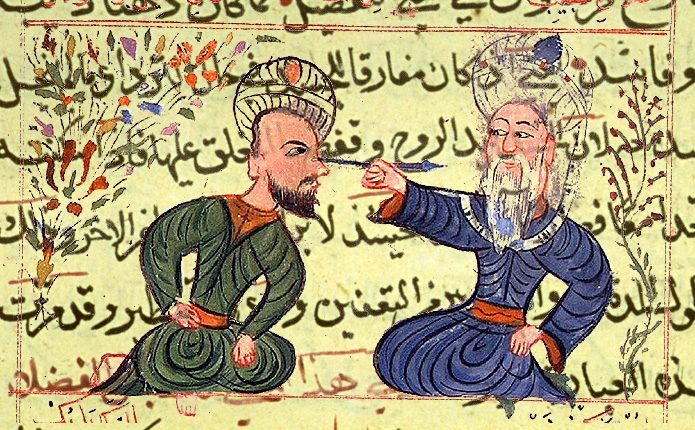“Where can I free myself of the homeland in my body?” – Mahmoud Darwish.
Poetry has been at the heart of Arab culture for centuries. Old thinkers and philosophers used poetry and language to record and express their beliefs, thoughts and even political opinions, significantly embedding creative art into the culture.
The global art form we know today was actually established more than 1,500 years ago in the Arabian peninsula and quickly gained popularity as Arab states and Muslim influence spread across the region. Because of its strong association with the Quran, poetry has traditionally been considered the highest Arab-Muslim cultural form.
Read also: Listen up! Here are Qatar’s most popular podcasts.
However, poetry is now a cultural phenomena that has reached all corners of the earth, taking on various forms according to cultures that embraced the art. Online, in coffee shops, art festivals, and even radio, poetry is now easily accessible for all to enjoy.
To commemorate World Poetry Day, Doha News has compiled a list of 10 Arab poets from different eras that left a mark on the region.
1- Mahmoud Darwish

Modern poetry cannot be discussed without Darwish being mentioned. Born on 13 March 1941, the Palestinian poet was born in the village of al-Birwa under the British mandate, but later fled to Lebanon to escape massacres by the Israeli army that went on to decimate the poet’s village.
Darwish was awarded several accolades for his beautiful and meaningful writings, so much so, that he became the voice of his struggling people. The praised poet was known for mixing modern poetry with Arabic rhythmical meters, writing passionately about love, revolution and the mass exodus of 1948, known as the Nakba.
His works have been translated into more than 24 languages.
2- Kahlil Gibran

Born in 1883, in Basharri, Lebanon, Gibran was a Lebanese-American writer, poet and visual artist. Raised in the west, the writer’s poems mainly tapped into the experiences and loneliness of Middle Eastern immigrants that left their homes.
Gibran’s simple and direct style of writing made him a pioneer in his field, attracting hundreds of thousands of readers and admirers from all around the world. He covered topics of love, war, and spiritual connections.
The poet’s best-known work is ‘The Prophet,’ which includes 26 delicate poems and was translated into 40 different languages. Notably, the book sold more than 5,000 copies in just one week.
John F. Kennedy, Indira Gandhi and The Beatles were among those who read his works.
3- Al-Mutanabbi

Abu al-Tayyib Ahmad ibn Husayn al-Mutanabbi, known as Al-Mutanabbī, was born during 915 CE in Iraq. He is regarded by many as the greatest poet of the Arabic language.
His poems were written in a highly influential style, marked by great metaphors and eloquent words, earning him popularity among millions of fans. But this did not go unnoticed. Al-Mutanabbi was known to be a proud man – a tone that was prevalent in many of his verses.
His writings, called a ‘neoclassical style,’ combined some elements of Iraqi and Syrian stylistics with classical features.
4- Hafez Ibrahim

Born in 1871 in Egypt, Muhammad Hafiz Ibrahim was known as the “poet of the Nile” because of his touching art.
Ibrahim wrote several nationalist poems that denounced imperialism – a topic he was best known for. His style of writing and superb skills made his works relatable for many and earned him a prominent place in society. In 1911, he became the director of literature in the national library at Cairo— a position that was highly respected in Egypt.
His poetry covered topics and concerns of ordinary Egyptians at the time, including women’s rights, poverty, education, as well as his criticism of the British Empire and foreign occupation.
5- Zakiya Mal Allah

One of Qatar’s most prominent poets, Zakiya is a Cairo University graduate with a doctorate in pharmacy. Despite her successful career in the health sector, Zakiya’s passion for poetry allowed her name to emerge in the arts world, with her poems being translated into Spanish, Urdu and Turkish.
The poet has published nine books, and her poetry has been included in English-language anthologies for its uniqueness and simple style.
Follow Doha News on Twitter, Instagram, Facebook and Youtube







